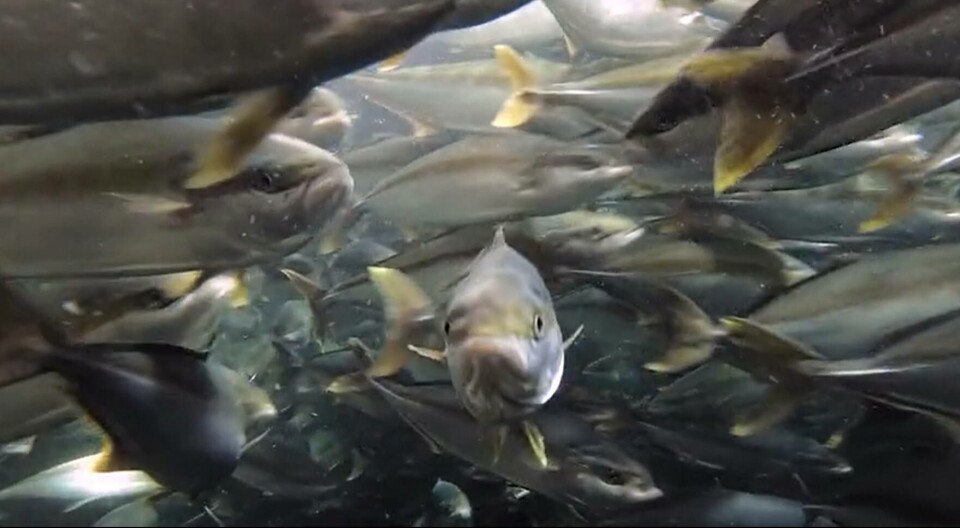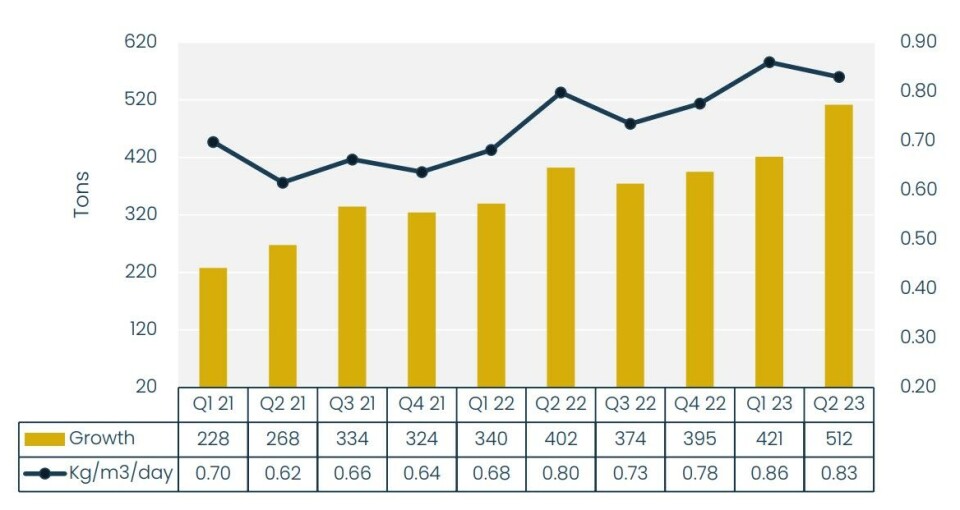
Kingfish farmer increased revenue and biomass in Q2
Dutch land-based fish farmer The Kingfish Company’s sales revenue increased by 14% year-on-year to €5.6 million (£4.86m /US $6.3m) in the second quarter of this year, it said in a market update today.
Revenue per kg for the company’s Dutch Yellowtail-branded kingfish (Seriola lalandi) continued to improve compared to the same quarter last year, up by €2.4 per kg (19%) to €14.8 per kg. This was slightly lower than in Q1 2023 (€15.1) because the Q2 harvest had a higher share of smaller fish which achieve lower prices.
Revenue for the first half of 2023 was up 32% to €11.2m (1H 2022: €8.5m) as a result of higher prices.
Record growth
Farming operations started in Phase 2 of the company’s recirculating aquaculture system (RAS) facility in Kats, Zeeland in mid-May, helping it achieve record high biomass growth of 512 tonnes in the quarter. Standing biomass at the end of June was also 512 tonnes, a near 100-tonne increase from the 415 tonnes in Phase 1 in six weeks.
Six additional tanks, each with a volume 380m³, are in operation in Phase 2, and full operations are expected by Q4 2023, with all 18 tanks in the extension filled.
“We reached important milestones in the past few months, financially as well as operationally: we have started operations of the Phase 2 grow-out systems and celebrated record production at our facility in Kats,” said chief executive Vincent Erenst.
Additional funding
“We have also secured additional financing which will provide full funding until we reach positive cash flow.
“Our priorities now are to finalise construction of Phase 2, continue to improve operational performance, and increase sales volumes to reach profitability.”
Total volume sold in Q2 amounted to 377 tonnes (whole fish equivalent), similar to the same quarter last year (384 tonnes). The company said demand continues to outpace its production capacity.

Biomass growth of more than 21% in Q2 showed the excellent performance of the company's systems as well as the faster growth of its third-generation fingerlings, it said.
“As a result, we will approach our maximum standing stock faster than expected. Operations of Phase 2 started in May 2023 and the full system will be operational by Q4 2023,” stated the company.
Productivity in Q2 was 0.83 kg growth/m³/day and economic feed conversion ratio (eFCR ) improved to 1.27. The company completed some feed trials resulting in new formulations which aim to reduce the content of marine ingredients, while reducing feed costs.























































